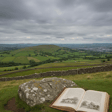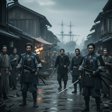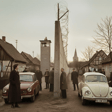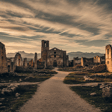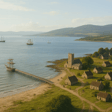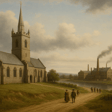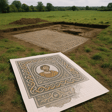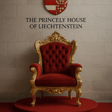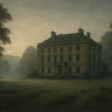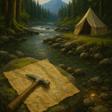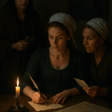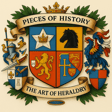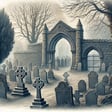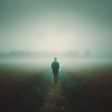Introduction
00:00:13
Speaker
Hello and welcome to Pieces of History, I'm Colin McGrath. In each episode explore both the renowned and lesser known events that have shaped our world. Today we turn our focus to Ireland, not just this well documented history but the voices, memories and stories that have been passed down through generations.
Meet Tomás Mac Conmara
00:00:31
Speaker
To help us unpack this rich and often deep personal history, I am joined by Tomás Mac Conmara, a historian and oral history expert dedicated to preserving Ireland's past through the voices of those who lived it.
00:00:43
Speaker
His work has been instrumental in capturing the lived experiences of Ireland's revolutionary period and beyond.
The Power of Oral History
00:00:50
Speaker
He is the author of The Time of the Tannes and The Scare of Martyrs, both of which offer compelling insights into Ireland's history through first-hand accounts.
00:00:58
Speaker
In this episode we'll explore the power of oral history, the stories that might have been lost without it, and what they'll reveal about Ireland's past and identity.
Tomás' Fascination with History
00:01:07
Speaker
From the War of Independence to the social history of everyday life, Tomás provides expert insight into the voices that continue to shape our understanding of history.
00:01:16
Speaker
I hope you enjoy. Hi Tomas, thanks very much for taking the time out of your busy schedule to speak to me. I really appreciate it. To kick things off, I was wondering if you can give me a bit of a background about how you got into folklore, oral history itself, and how you got into it as a teenager.
00:01:36
Speaker
Yeah, Colm, thanks a million. Look, I suppose the the the background in documenting the stories and the memories and and the interest in it came back far before the academic development, and and which I think is probably was very important for me whenever I went into the kind of academic world and and and started working, I suppose, the theories around memory and the importance of oral history into that,
00:02:01
Speaker
ah sector But whenever I was, you know, a very, very young boy, i was from I am from a townland called Ballymalone in East Clare, which is a rural mountain townland. And, you know, i was a child of the 1980s. And, i you know, the more I kind of reflect on that.
Influence of Neighbor Jim McNamara
00:02:18
Speaker
I think I was very fortunate to be at kind of a tail end of that sort of, I guess, freedom that that that we had at that time where where I could spend, you know, countless hours in the neighbor's house and and there wouldn't be anybody looking for me. And there was something really beautiful about that.
00:02:35
Speaker
But I was very fortunate, Colm, that my nearest neighbor was ah was an old man called Jim McNamara, who would have been born in 1908. And and I would have met Jim first, I think probably around 1987, 1988, at least when I can kind of consciously recall being in his house.
00:02:57
Speaker
And, you know, Jim was there with his wife, Sarah, who passed away a number of years after that.
Impact of War Stories
00:03:03
Speaker
So it was really maybe from the age of 12 or 13 where I would have spent, you know, an awful lot of my days with Jim or certainly a couple of hours every day.
00:03:12
Speaker
Now, you know, i have said this publicly multiple times, but I mean, that was the foundation of my and appreciation of older people. i do think, I know, in fact, that I had a huge interest in the past and in, you know, objects of the past, you know, be that an old bottle or, you know, some object that kind of represented the past and you know, the history of my townland, if it was a piece of fire machinery.
00:03:38
Speaker
For whatever reason, I had some fascination with would anything that could kind of transport me to the to the past. And of course, I heard stories from my mother, who was from that townland, and my father, who wasn't from a ah parish over, you know, and he would have talked about his childhood and his youth. And both of them, you know, would have touched the early 20th century with their parents and and their oral traditions. So, you know they were able to take me into the past by virtue of just the natural recollection.
00:04:09
Speaker
But in the case of Jim, because he was born in 1908, you know, his...
The Art of Storytelling
00:04:12
Speaker
and um you know his discussion of his youth was taking me back to the 1920s and and to to ah to a different world, obviously, than the one I was growing up in.
00:04:24
Speaker
And I think what it did for me, as a child, I was just fascinated. i enjoyed spending time with Jim. we were We were really close. We got on well together. and And not everybody got on with him. you know well he he could be He could have been contrary from time to time.
00:04:39
Speaker
But whatever reason, we really always got on and um I'd be fascinated by asking him about his childhood and when it whenever he was working and what he worked at. and He would have worked in the forestry at a time where were physically cutting down trees and and and you know there was a great physicality to what he was describing, even working with horses and so on.
00:05:01
Speaker
um But what was really important, you know, and I think it was maybe later when I realised this, Jim would have been, i suppose, what we'd now characterise as maybe a passive bearer of history.
00:05:12
Speaker
He wasn't actively trying to tell me about history. He wasn't actively trying to encourage me to be interested in in the past. He was just talking about his life because I was asking him about
Preserving Traditions in Modern Times
00:05:22
Speaker
it. Now, I've met hundreds and and thousands of people since who are are determined to tell their story and pass on their history and and tradition and so on.
00:05:31
Speaker
um And that's absolutely brilliant. But it was amazing to get that exposure and experience as a really young child and teenager to a man who, even though he wasn't trying to, could, by virtue of his memory and his recollection, take me to a different time and also illustrate for me that you know there was value in that, there was understanding in that, you know beyond what I was reading as I got older in historical publications and so on.
00:05:59
Speaker
And because he lived through the War of Independence as a young boy, um you know the black and tans would come up on a occasion. occasionian They came into his bedroom you know when he was a child. So you know all of that kind had had a capacity to take me to the emotion and the experience of that time.
00:06:15
Speaker
far more powerful I find found than than publications or conventional
Documenting Oral Histories
00:06:20
Speaker
history. And I suppose that started me on a trajectory through that memory and that kind of exploration which led into the academic world, you know, much, much, much later.
00:06:30
Speaker
It's a amazing, Tomás. I always wondered why the Irish seem to have this knack for storytelling and folklore and able to kind of bring those generational stories through. you Why do you think we have such a poor storytelling?
00:06:45
Speaker
I think that he says everything is, you've got your mobile phone, you can take a a photograph, and then you can take a video. It's it's so easy. Obviously, in the end, that was not a thing. So yeah you had to physically remember the stories, and it was passed out through the generations. Why do you think we are such a good nation for that?
00:07:03
Speaker
and You know, it's a really good question. and And, you know, I think, first of all, you know, we we had a lot to tell, you know, and we have a very, very rich folklore with a very rich mythology.
00:07:14
Speaker
You know, we we had a lot to speak about and a lot of it connected with the landscape around us. So, you know, there was this endless... repository of of story and lore and tradition and belief that was written in the landscape and,
Understanding the Past Through Oral Accounts
00:07:29
Speaker
you know, are our kind of historic and cultural connection with the landscape around us, I think, gave us this never-ending supply of stories.
00:07:38
Speaker
But, you know, your you're right in the points you make about being from a storytelling culture. But I often think, Colm, like, were from a story listening culture as well.
00:07:49
Speaker
And there were far more story listeners in our culture than storytellers. Because, you know, um but even though we had that oral tradition, which was communicated but by by by voice and by words and through memory, but the storytellers, as we would recognize them, the noted people, they were they were far more few than the general population. And they were hugely revered and respected.
00:08:12
Speaker
So throughout our history and our culture, we had far more listening than we had telling. um And I think there's great, great value and importance in that. And like, you know, in some ways we've, we've maybe our storytelling has weakened, but certainly our story listening has weakened. And that think so we're we're very much impoverished as a result of that.
00:08:32
Speaker
And, you know, our kind of, the way our attention has, shifted from that sort of natural pathway of of tradition and memory and is is very troublesome in in my view, because, you know, we can have all of the the modern technology that you mentioned and the forms of communication.
00:08:50
Speaker
But there remains, in my opinion, a real
Techniques in Oral History Documentation
00:08:53
Speaker
value for understanding where you come from, understanding the landscape around you, and also then understanding how the real you know intimacy and connection to that comes from the people before you, the tradition, the story, the the understanding as well that was passed to previous generations.
00:09:13
Speaker
And you know I just want to maybe emphasize there that It's the understanding for me is absolutely critical because like we can we can accumulate historical knowledge, and and of course we should, and we can analyze our our history and and and all of that.
00:09:28
Speaker
But it's the understanding of the past that has been always my ambition. And for me... that listening is absolutely central to developing an understanding.
00:09:38
Speaker
So from the very early age of listening to Jim, you know, through to listening to to hundreds and hundreds of other people that has brought about, hopefully anyway, a better understanding for me, and understanding of history and what happened and what, what it was like.
00:09:54
Speaker
um but also then an understanding of memory and an understanding of what's been told to you, what's not been told to you. um And and e maybe
Family Stories' Importance
00:10:01
Speaker
memories are shaped in the way they're shaped. But it comes back to that fundamental cultural thing that you mentioned that was so strong in our past for a variety of reasons.
00:10:10
Speaker
um And it's so sad, you know, if we do as a society kind of drift further and further away from that, because um it's not altogether obvious, it's going to survive on its own. and um I guess that's what's driven a lot of collectors to try and preserve that.
00:10:27
Speaker
um But I think in its natural form, it's it's it's weakening, which is very, very sad. Yeah, I know even from my own point of view as well, whenever I was younger, say, P&A's years in university,
00:10:39
Speaker
I didn't really, it's not that didn't listen to my elders or my grandparents. It's just, it just wasn't really a ah thing. Obviously i had a keen interest in history. That's my academic background as well. But it wasn't until I reached that late twenties, early thirties stages where realised that they're not going to be around forever.
00:10:56
Speaker
I need to start co collecting these stories myself. and I was completely unaware, like you said, of where my family came from. Like I'm originally from Belfast, but my great-grandfather's parents are originally from Tyrone, so are my grandmothers. They're from the Moy direction.
00:11:11
Speaker
All of those things, you
Respecting Individual Narratives
00:11:12
Speaker
can go back and check all these websites now and you've got these ancestry directories and your birthday tickets, but that tells you nothing. That just gives you a piece of information on and a page and that's it. So I think it's fantastic to kind of keep up those traditions.
00:11:27
Speaker
Whenever you started directing those details, did you record any of them? Yeah. and Well, in terms of how how I started it, let's say going back to to Jim, as I mentioned, and then other neighbours. And because my father would have been a a fierce man for what what would be called in clear going on Coured, which was going on the visit, and you know that that would have been a really strong tradition in his youth and and throughou throughout his life. And he kept it up in his own way into his older life.
00:11:57
Speaker
and And when I was a young teenager, I would have often gone with my father or two to to visit these older men that he was you know maybe friends with from his youth. And they'd be a lot older than him even.
00:12:08
Speaker
But i remember I used to start writing things down on an old notebook. I did it with Jim and I did it when I used to be sitting kind of, because I wouldn't be involved in the conversation. you know, um but I'd be listening and and, you know, it wouldn't be great documentation. I look back now, but at the same time, it kind of illustrated maybe the curiosity and the recognition that they were kind of using words or they were referring to words and and and and aspects that maybe weren't being discussed in general at that time, only within those types of conversations.
00:12:37
Speaker
But when I i reached but the age of 17, I would have started using a dictaphone and and recording then, again, very amateurishly. But I suppose it was really in my early 20s when I started and documenting ah digitally the memories of of people all across ah County Clare for a number of years and then obviously beyond that.
00:12:57
Speaker
um And it would have been that, you know, one-to-one generally um life story, semi-structured type of an approach, which obviously over time you'd you'd you'd like to think you've improved and you've sharpened and I train a lot of people now on how to do it.
00:13:15
Speaker
But what's fundamental to it is it has to come back to that curiosity, that respect for the person's memory and
Musicians and Local Traditions
00:13:22
Speaker
their the value of their story and tradition, whatever that may be, by the way. I mean, you know, they'll have their own perspective and and it's it's to recognize that in its own place and to to work with them to help.
00:13:34
Speaker
you know, bring that story out and and to record that or that tradition or whatever it might be. and um So it it evolved in that way. And ah while I spent a lot of time, Colm, recording memories of the revolutionary period um in Clare and across the country,
00:13:52
Speaker
I also was documenting general memory and tradition and folklore wherever I could as well. and that evolved into you know developing a group called Cueven of Unclór in Clare and thankfully into a career.
00:14:05
Speaker
But in the in in relation to the music, and you know, that obviously, and in a county like Clare, it's very, very vibrant and as a tradition. Now, I'm not from a a traditional music background, but I love it and I respect it hugely.
00:14:20
Speaker
So I would have encountered, I think, maybe more, I would have explored the social sort of ah history and tradition around the music than trying to maybe zone in on the music. Because, yeah you know, partly, like, ah you know, there's a certain knowledge, I think, that goes with that.
00:14:37
Speaker
But what I did find fascinating is that in many of the recordings I would have done in general life story interviews, you'd encounter stories of musicians and they wouldn't be the well-known ones. They'd be the people who played in their townland or in their home and, you know, who and
Oral Traditions of the Irish Famine
00:14:53
Speaker
obviously inherited from people before them. And there is a way then to document people within the musical story ah through oral heritage that will be lost even within the traditional music story itself.
00:15:06
Speaker
because they're not part of the kind of public performance of traditional music, and which I find fascinating. So there are so many ways that the the the method of oral history or the discipline can help unearth and disclose these aspects of the past in really, really powerful ways.
00:15:24
Speaker
Before we move on to your book, Thomas, I was just thinking as well, like so what was it? what was it so the The first time you recorded something was 14 or 15, did you say? And then, so some of the stories that you were able to get from from him, some of his stories could been 100, 150 years or old, but he passed on obviously to yourself.
00:15:43
Speaker
How far back was the earliest story that you maybe have been able to gather over the years? Yeah, that's a really good question. and Again, you know, we're we're moving between, let's say, oral history as testimony to oral tradition.
00:15:57
Speaker
And and ah I say that for a reason, not not to kind of divide them too much, because I think sometimes within academia, we get too caught up in technical terms and definitions and and so on, because I don't think I've ever done an oral history interview where oral tradition and oral testimony don't overlap, you know, because that's just the nature of life. You inherit and you you You live and and it's all mingled together.
00:16:20
Speaker
But I would have two specific examples. I remember doing an interview with a lady back in Milltown Malbay in West Clare, and um she was 97 at the time. And I remember asking her, which I would often do, is who was the oldest person you remember when you were a child?
00:16:38
Speaker
And she recalled being about six years of age and speaking to her grandfather, who was a really old man over the age of 90 at the time. So the recollection she had was remembering her grandfather or telling her when she was a child about him being a child ah during the Irish famine in West Clare, seeing a woman with a baby in one hand, bending down, picking up leaves from the ground and eating the leaves.
00:17:02
Speaker
So that was the observation of a maybe seven or eight year old in the 1840s who grew up to be a um a man in his 90s and told his six year old, seven year old granddaughter that little girl grew up to be a 97 year old and told me into the recording device.
00:17:18
Speaker
So there there is that potential often with with oral tradition to reach really, really far back into history. history and and tradition. And it's it's really, really powerful.
War of Independence Context
00:17:28
Speaker
And it's something I always encourage people that if you are talking to an elderly person and they reflect even briefly on their grandparents, like there's a little window there into a very deep aspect of our past that you should really try and hold the attention to. Because, you know, you mentioned your grandfather being a Stephen Orr in and but in Belfast.
00:17:50
Speaker
And to be able to get a recollection of that man, you know it's for somebody to describe him, it would be very, very challenging, I would say. But if you had that opportunity, like you should zone in on it. Because even if you get a physical description of him, you know what color hair he had, what what way did he speak, what type of clothes he wore, that's very precious. Because it might be the only opportunity ever to get some form of description of that particular individual and almost rescue them from oblivion in a way.
00:18:20
Speaker
um so so there are those opportunities. There's another, which again goes back to the Irish famine in the same sort of intergenerational way where the original man sees um a local individual whose role was to tie Sugaan ropes around the the feet of corpses and drag them to a Caillene to bury them.
00:18:39
Speaker
And again, through that intergenerational form, ah that story came to me as well. So yeah, there those opportunities do present themselves and they're really, really powerful when they do, but I suppose it requires a level of attention to to recognize the value of those moments. They might only last for three minutes or less, but they can carry really, really powerful stuff.
00:19:01
Speaker
That's absolutely fantastic, Tomás. Great. um I just want to kind of move it forward a wee bit then. So from your academic work then, you you decided to obviously write a book. And obviously I don't want to go into nothing but to it because obviously you can do that for me. But is it okay if we we touch on your book, The Scarif Martyrs?
00:19:18
Speaker
So but could you give me a bit of a background? even Sorry, Tomas, even before we get into the the book itself and and the the the key people and incidents and what actually happened, For a lot of people, they not necessarily know the War of Independence in Ireland.
00:19:33
Speaker
What state was the country in politically, especially within Clare Tipperary? What were we in 1920 before the incident happened and how you came into it?
Evolution of Irish Guerrilla Warfare
00:19:44
Speaker
Yeah, no problem. So in 1920, I suppose what's important to understand is that, you know, within Ireland, there was, you know, a tremendous mobilisation of ah resistance against British rule, which was probably unlike anything that had happened in Irish history before that.
00:20:01
Speaker
Because, you know, people who maybe even in America or or elsewhere, mightn't understand that the the dynamics of the War of Independence, but, you know, they will understand to some degree that Ireland was occupied by Britain for for and approximately eight centuries.
00:20:16
Speaker
And there had been many attempts throughout history to overthrow that from from and in in various different forms of rebellion, usually, you know, mass rebellion in in a conventional sense, um which were brutally put down by by the British people.
00:20:32
Speaker
but a British government, an army. But what was different around 1920 is that it it evolved from 1916 Rising, which was a standoff in Dublin to effectively call out British rule.
00:20:46
Speaker
And the reaction to that by the British government, the execution of the leaders, um had the effect of, I think, revealing a sentiment in Ireland. I think often people talk about the the fact or they present it in a way that, you know, these men led a rebellion in Dublin, which came out of the blue, that the British executed the leaders and then the Irish people changed their opinion completely.
00:21:10
Speaker
and came out in support of this idea. I believe that that many, you know if not the majority of Irish people, always held a sentiment of separatism, always wanted ah freedom from British rule.
00:21:21
Speaker
But what had changed from 1915 to and is that because of the aster rising ah it surfaced those feelings and those emotions. In 1917, we had elections where Sinn Féin representing republicanism were now publicly ah campaigning, whereas if you were campaigning in 1950, you were going to be arrested.
00:21:43
Speaker
So there was a real suppression of republican sentiment before the 1916 rising. Afterwards, it broke out. Now, it didn't make it easy, but it certainly created that sort of and liberty but with which people started to voice themselves much more politically So we went from 1916 through to 1920, bringing us into what but became known as the War of Independence.
IRA Structure and Operations
00:22:08
Speaker
But it is very much connected to the 1916 rising and that greater drive for Irish independence and, of course, that greater repression from the British rule to to put that down.
00:22:19
Speaker
But it it it evolved and manifested as a guerrilla warfare, whereas the IRA, who became the the the army of the Republican movement, decided ah that you know the the older forms of stand-up rebellions against ah ah you know an army the size of the British army and the power of the British Empire would not be effective. So therefore, we will use our landscape or knowledge of our place and and our connections to those places ah to our effect. And the IRA was established according largely to the geographic and cultural boundaries of the country.
00:22:57
Speaker
So I'm from County Clare, so there was a Clare IRA. There was an East Clare IRA Brigade, a mid-Clare IRA Brigade. Beneath that, there were battalions and companies which were linked very much to the parish identity and the local identities.
00:23:11
Speaker
And that's really, really significant, Colm, because, you know, it's... First of all, it it directly manifests the the fight as something from your place and something that is happening on your doorsteps, whereas traditionally wars happened in a far off country, you know, in the context of the British experience anyway.
00:23:30
Speaker
um But in 1920, we had the, I said suppose, the height of that, certainly 2021 was the height of that, whereby the IRA had been really effective in operating in that way, largely ambushing British authorities, British forces, including the RIC, who were the the Royal Irish Constabulary, and then ah force called the Black and Tans, who were...
00:23:53
Speaker
ah in in the main immobilised British soldiers from the First World War who were sent into Ireland to suppress the Republican movement and did so with absolute immunity, and which of course was a direction from the British government.
00:24:08
Speaker
ah They're very, very large within the the memory and historical consciousness of Ireland because of the way in which they behaved, the brutality of them, but critically because all of those memories rest on local experiences.
00:24:25
Speaker
The Black and Tans were raiding homes in people's townlands and their villages and their streets. And all of that memory stayed in those places when the Black and Tans were long gone.
Significance of the Scarif Martyrs
00:24:36
Speaker
So I suppose that's some of the memory I encountered. But certainly in 1920, coming up to the period where where the Scarif Marker story becomes central, um Ireland was at the height of that type of warfare.
00:24:49
Speaker
All over the country, some places like Munster, where Clare is situated, would have been perhaps more intense than others. But the same dynamic operated across the country.
00:25:00
Speaker
And all of these different individual localized incidents, um even though they might be small in comparison to the major you know European wars, they're really, really significant in a local context.
00:25:11
Speaker
And they manifest really significantly within local memory. So can you lead us into how you got involved in this story and how you got involved writing the book? and in like kind of Because i want people obviously to go go away and read the book itself because it is fantastic.
00:25:25
Speaker
Can you even give us that a general overview of of what happened, who the key players are and No problem at all. Well, first of all, in terms of how I got into the to the research, you know, I'm from a place called Tomb Graney, which is is literally next to Scarif. So, you know, from being interested in the revolutionary period in the War of Independence growing up, I would have always heard about the Scarif Martyrs because they were, ah it was the incident which it took place on the 16th of November 1921.
00:25:52
Speaker
was the most significant incident in the entirety of East Clare. It was the single greatest loss of of IRA volunteers in one incident in Clare with three ira IRA volunteers killed and one civilian, Michael Egan, who I'll explain about in it in a little while.
Researching Scarif Martyrs
00:26:07
Speaker
obviously it it was an area I was always aware of and you know had had been researching and writing about history before, I guess, i i took seriously the the the idea of a book.
00:26:18
Speaker
um You know, it it was it's really, really well commemorated. um There had been a booklet, small booklet produced in on the 50th anniversary um in 1970.
00:26:30
Speaker
ah But it was very clear to me, even when I was young, that it was a subject and a story that required, you know, significant research and telling. But I would have been um recording the...
00:26:42
Speaker
stories of the Scarif Martyrs and tradition around it before I had really settled in my head, I'm going to write a book about this. And I had written other books. I wrote a book about the 1917 hunger strike um in in Mount Joy, but the Clare,
00:26:59
Speaker
ah volunteers role in that and that comes into East Clare and comes into the the same kind of landscape and period and then the time of the Tens which which you mentioned earlier and came along as a result of an awful lot of recording um but always I was working on the Scarif Martyrs I was always trying to find information as I was making my way through other aspects of history and because I felt it was it was deeply important and I suppose as the years went on I kind of realised more and more I'm going to have to to to really deal with this. And it probably wasn't that easy in a way because um it is a very loaded story. It's a very emotional, emotional story in East Clare. I mean, it's very clear from particularly the older generation, ah the status that they hold in East Clare. But historically, you know, standing back from it, it contains very significant and sensitive issues, um including the, the,
00:27:55
Speaker
the idea or the suggestion that there was an informer involved in, um, selling the the men, ah when, when they were captured. And, you know, that carries great sensitivity, particularly when you start to realize that it's, it's increasingly likely that it was a local person that was involved in, in that.
00:28:14
Speaker
Um, so, you know, I suppose I, I took it very seriously and I was researching it for years before I had decided that when I would write a book and it took 17 years in the end to actually publish it.
Balancing Research and Oral History
00:28:29
Speaker
um And i'm I'm quite happy with that. I mean, it it took all of those years, Colm, to ah hopefully and produce a fairly comprehensive account.
00:28:40
Speaker
And it's one of the things I believe in terms of my philosophy of history is that, you know, it takes an awful lot of time. it takes an awful lot of patience. I'm zoning in on one ah one incident in East Clare.
00:28:50
Speaker
um And as I said, it took all those years to to get her. And there were there were but were um aspects that I would have found in, you know, 2007 that only made sense in 2017 when I found something else.
00:29:04
Speaker
And, you know, it's it's I really enjoy that aspect of kind of over time, you know, piecing things together and maybe finding some revelation within a recording or within some other document um that now makes sense.
00:29:19
Speaker
And it's a really beautiful thing as a historian to to find that like the tiniest little detail, but that little detail unlocks a greater meaning of something you've been working on for so long.
00:29:30
Speaker
um So the the other point, I suppose, in in terms of that experience is that, you know, the time of the Tans was... you know, very much focused on demonstrating the value of all of these stories relating to the War of Independence and, you know, ah you know why they're important.
00:29:47
Speaker
And of course, there were conventional sources used to to to explore the memories that were were were or reflected in that. But the Scarif Martyrs, you know, really required a significant amount of what we'd call, you know, a conventional academic research and analysis.
00:30:02
Speaker
But obviously, in addition to that, the memory um and the oral history, is essential to bring in a meaning to it.
Events of the Scarif Martyrs
00:30:11
Speaker
Because and you know if you don't want have the human story and have an attempt to understand what it was like at that time,
00:30:19
Speaker
um you know you I don't mean this in ah in in a really kind of um facetious way, but it's it's like like having a phone book ah You know, comparing to speaking to the people in the phone book, you know, it's it can be quite, quite dry.
00:30:35
Speaker
And when the actual story you're reflecting on is so filled with human experience, so filled with human emotion, you have to lean into that and try and understand it more deeply.
00:30:46
Speaker
um ah You asked, sorry, Colm, you asked there about just to give a sense of who it was and I got nowhere near that point. But just to to explain to the to the maybe listeners that sha the four Scarif Martyrs were were three IRA volunteers and one of them was a civilian. And that's a really important point because, you know, in in some ways, people take it that there were four IRA men who were killed by the British forces.
00:31:11
Speaker
And. But there were three IRA men, Alfie Rogers, Michael Brood-McMahon and Martin Gilday, who had been very active IRA volunteers within in the Scarif Company, the 4th Battalion, and would have been, you know, even though there were young men, relatively senior volunteers at that stage, had a couple of years of experience, had been involved in a number of, you know, relatively serious incidents.
00:31:34
Speaker
um But by the time of November 1920, there had been about two months of really significant activity in East Clare, where six ah members of well five members of the British forces had been killed ah by the IRA in the space of two months, when up until that point, nobody had been killed.
00:31:52
Speaker
And an informer was shot dead. three weeks before the Scarif Martyrs were captured ah in a very brutal way. um And it's it's an important story. His name was Martin Cunahan.
00:32:06
Speaker
And, you know, I've examined it very, very closely. I managed to track down his his grandson, which is all detailed in the book. And that was a really charged sort of a correspondence for a couple of years.
00:32:19
Speaker
But it was really significant that he was um killed in the end of October 19th, ah twenty And three weeks later, the Scarif Martyrs, only two parishes away, were sold by another informer, heir, of course, of what happened to Cunahan.
00:32:34
Speaker
But the because of that period of activity in which those three men were involved in, they were on the run for that entire time. And at one point, they find themselves down in in northeast Clare in a place called Whitegate.
00:32:47
Speaker
And and ah they know that Michael Egan, ah young man who wasn't in the IRA, I've been able to establish, was a really kind of a gentle type of an individual.
00:32:57
Speaker
Like, what if I, you know, the indication is supported the the movement generally, but they've had that type of disposition that would have kind of found himself in the IRA, you know. And i the more i I suppose live and look at these things, I think there are people who have that type of disposition or that type of,
00:33:17
Speaker
you know, outlook or attitude or whatever we want to put on it, spirit that will you know go into that physical force fight, whereas other people just aren't built for that. and But Michael was caretaker of of Williamstown House, which is an old hunting lodge.
00:33:35
Speaker
And the three men came looking for shelter. They knew him and he decided to help them. So he allowed them to sleep in the shelter or to sleep in the the back room of Williamstown House.
00:33:48
Speaker
there's about three weeks where they had been staying in the area. One of the suggestions was that they were becoming lazy. They weren't actually trying to hide themselves. They were being too open, going to house dances.
00:33:58
Speaker
But I've been able to establish that that wasn't the case. And as a detail in the book, you know, they've made significant attempts to actually get away from there when it was suggested that they were being watched. um But ultimately, having made their way back up to ah County Galway at one point on foot,
00:34:15
Speaker
ah to the home of Martin Gilday, one of the three men. ah They were being spied on up there as well, so they had to turn back around and come back down. They arrived back down on the 15th of November to Williamstown, and ah they spent a bit of time in the area with some neighbours,
00:34:32
Speaker
and Cousins, and then went into the Williamstown for the night. But it seems in that period of time, there was at least one individual who had gotten information to the British forces who were based in Killaloo, which is just ah about 12 miles from Whitegate.
00:34:48
Speaker
What is significant, though, in the context of the landscape is there's a lake running but between Killaloo and Whitegate. And unfortunately for them, where they were staying was right up to the shore of Loch Derg.
00:35:01
Speaker
So the auxiliaries, the British auxiliaries, ah who were based at the Lakeside Hotel in Killaloo, which is there now, you can stay there, it's a popular hotel, ah they commandeered the SS Shannon and travelled the following morning on boat,
00:35:16
Speaker
from Killaloo all the way down to Whitegate. And once they got to the shore, they were in the house within a couple of minutes. um They met Michael Egan there, demanded us know if the three IRA men were were staying in the house. He tried to divert them.
00:35:29
Speaker
And as a result of that, he was taken prisoner as well. And ultimately, even though the official record still dictates that they were taken back to Killaloo, to the Lakeside Hotel, held there, were being transferred at midnight over to um the RIC barracks and made an attempt to escape and were shot attempting to escape.
00:35:51
Speaker
and But the book it probably won't surprise anybody to to to hear that you know I would have a very different ah conclusion to that. And you know that that's not just me. that was It was never believed by anybody apart from the British that they were shot trying to escape because the evidence shows that they were very severely tortured and brutally killed on the bridge that night.
Community Impact and Sensitivity
00:36:12
Speaker
And again, Thomas, as well, like you said, you yeah you took 17 years to write this book, which is a long time, let's just say. And you you wanted to give the men who obviously lost their lives in this respect.
00:36:26
Speaker
You wanted to to do your research. You didn't want to make it sensationalized at all. Just circling back to, as opposed to the very start this conversation, Margaret Coy, obviously you were able to get firsthand oral history from. high important Margaret? Margaret Coy.
00:36:42
Speaker
ah She was really, really important. And just for if for you listening, Margot was born in 1904. So she was 16 years of age when the Scarif Martyrs were killed. and And, you know, when I interviewed her, she was 105 years of age.
00:36:56
Speaker
And I spoke to her about, you know, various different things. Like we mentioned earlier about life story. And it was all really interesting. But of course, I had planned to ask her about the Scarif Martyrs. Now, when I interviewed her, she'd been living in a different part of Clare for over 80 years.
00:37:11
Speaker
um but As soon as I mentioned it, her entire emotion changed. And it was really, really powerful to see a 105-year-old woman crying tears in front of you. know and And she was crying, as she recalled, the moment she heard about the men.
00:37:26
Speaker
ah being killed and that she knew three of them. She knew the three IRA volunteers. and She actually didn't know Michael Egan that well. um But the three IRA volunteers, because they were based in Scarif town, she knew them well.
00:37:38
Speaker
and so Two of them worked in shops. Three of them actually, sorry, excuse me, worked in shops. So they were well known to the people of the town. um And, you know, what it did for me really and the importance of Margaret Cullum was not any historical information she gave me, even though she did.
00:37:54
Speaker
It was the emotion that she um conveyed to me, which just really brought it home to me how, you know, um yeah how the human experience was how how the the human story um was experienced at that time.
00:38:12
Speaker
Because that was Margaret who knew them. She wasn't related to them. But there is then the the families you know who you can only begin to imagine what the effect was like when the news came back about their deaths.
00:38:25
Speaker
Now, some people listening to this, and and in different parts of the world, will point to you know, various incidents that have happened throughout European history or world history where there's been, you know, thousands of people killed in one day and we know of it in Palestine recently and so on.
00:38:40
Speaker
and But again, I go back to that point of, you know, when incidents like this happen within a local place, ah you know, they can be deeply, deeply embedded in the psychology and the consciousness of the the community.
00:38:54
Speaker
And so Margaret gave me that sense of what it was like to live through that. She spoke about the funeral. She spoke about the experience of that. And, you know, there are multiple people. I was very fortunate with Paddy Gleeson as well, who was also born in 1904. And I interviewed Paddy over many years.
00:39:09
Speaker
And he again remembered that. He remembered the men. He remembered the Martin Cunahan incident, you know, so he was able to give me great insight into to that period as well. And even for the people who I interviewed who were the children of that generation or who were were were even born afterwards, you could still get that sense from the um the the memory that they inherited.
00:39:33
Speaker
You know, they they would have known the brothers and sisters as they got older. They would have known, one some of them knew the parents of those men as they got older. um and And that was really, really powerful to to get that sense of, you know, the historical knowledge, that the kind of human detail around history the impact of it and not of the historical, and you know, um information.
00:39:58
Speaker
That really, i hope, enabled me to convey that to the reader, you know, through the memories and experiences of those people. and hopefully then, you know, the aim would be to to bring the reader as close to the human experience of that time as possible, apart from just giving them the historical detail and analysis.
00:40:20
Speaker
Yeah, because I think, again, that's what you find with society and with TV these days. Things become so sensationalised while you forget that it's actually happened to people, their families, their extended families. It goes on to generations, and especially back then as well.
00:40:36
Speaker
There's just one one point on that, I think, which is maybe worth making. And I'm sorry to to to go on too much. But the the sensitivities around that, like you're completely right about all of that. But the incident around informer probably brings that really together because and it was something I was aware of since I was a child because the song which Christy Moore sung, now he didn't compose it, but he sung it, you know, talks about or one of the concluding lines is the day will come when all will know who sold their lives away.
00:41:05
Speaker
um And, you know, that was always, and even when i spoke to people, they'd talk about the informer and Margaret talked about it and with great anger when she'd speak about it, you know. um And I was always trying to, you know, find out who it was ultimately, but also as I got older then, it was more about maybe the context of the individual and so on.
00:41:26
Speaker
um But I think I decided... ah certainly several years before the book came out, that whatever I would find, um that I would be very careful about just the the naming of the individual.
Legacy of the Scarif Martyrs
00:41:39
Speaker
And as it transpired, as i as I detail in the book, there were three and local individuals. Any one of those three could have been the individual. Now, I do pick out which one it was most likely to be, but all three of those individuals were local people. and Two of them have still families in the area.
00:41:57
Speaker
know For me, there's and there's ah there's a route there to maybe selling more books where you name them and you you you you you shame them and and and so on. But to me, that that's entirely ignoring the the reality of the community itself. in which it happened, the sensitivities around it, and the fact as well that the vast majority people I would have ever spoken to, even though they would talk about it with emotion, none of them would agree with naming the informer because it would hurt the families who had nothing to do with that. We do know in Irish culture, the informer thing does pass on to the children, um but but oftentimes very unfairly. and you know So ah i had the decision that you know would maintain naming the people
00:42:43
Speaker
add dramatically to the historical account or would naming the people damage people or hurt people significantly and I felt it would be the latter and I just for me that that wasn't what something i was going to do.
00:42:56
Speaker
It's still quite relatively fresh for what two, three generations down the line. Oh, it certainly is. i mean, there's no question. I mean, I've encountered emotion throughout all my interviews and, you know, and I'm involved with the commemoration because it's a local, non-political, even though there'd be, you know, different politics at it.
00:43:18
Speaker
and But there's a real strong determination there to to remember it. And, you know, even from younger people who mightn't have a full grasp at a story, they have a grasp at the emotion.
00:43:28
Speaker
and And they have a grasp that this but was a real wrong and, you know, there was a brutality to it. And, you know, there is a reality as well that the men themselves, you know, when you look through their stories, they they they do come across as very sincere revolutionaries. I they were Irish language enthusiasts. They were...
00:43:46
Speaker
Martin Gilday was teaching Irish dance. they you know They had been committed to the physical fight. and And they also seemed, from the information I've ever been able to gather, they they did seem to have really good personalities and they were well liked.
00:43:58
Speaker
So all of those things are transmitted in the memory as well. and it adds to the to the emotion. And then Michael Egan, you know... who who is different and it doesn't at all mean that the other three men were any less or any more ah guilty or, you know, and that their their killing was any less more acceptable.
00:44:20
Speaker
But because Michael wasn't in the IRA and he decided to to let them stay, there is something different about his death, you know, and it needs to be acknowledged. It's not better or worse, but there's something different about the quality of it. And that's part of the emotion the whole story as well.
00:44:36
Speaker
Exactly. Yeah, that's fantastic, Tomas. What advice would you give someone who's maybe starting to kind of get into the field of um oral history and oral tradition?
00:44:49
Speaker
Like I say, if you could talk to yourself, you know, 15, 20 years ago, what what what advice would you give someone going into this area? Because like you said, is it is it coming back into the fore or would you say it's kind of dying
Advice for Aspiring Oral Historians
00:45:01
Speaker
off? Like, how do you see it going in the next few years as well?
00:45:04
Speaker
Yeah, yeah. Well, no, it's certainly growing in in strength. anded And I've been involved in it for, Jesus, 25 years now. And, you know, certainly in the last 10 years, I've seen a huge growth, both within academia and and within the community as well. And, you know, ah the Heritage Council, for example, and in in the...
00:45:24
Speaker
in the state would be now supporting a lot more of that work than they had of previously. So it's very much growing. And I'm very actually, you know, happy to have been commissioned last year to develop and something I've been advocating for for for nearly 20 years, a national oral heritage strategy.
00:45:42
Speaker
So I've done a scoping report and you as a Belfast man will be happy to to hear that I've written very strongly into it, that it needs to look as a 32 county strategy, 26 counties, because memories sort transcend the border very handy, you know. Yeah. So it must look at that and as a 32 county All-Ireland strategy.
00:46:03
Speaker
But that' that's reflective of the fact that it's growing, you know, and and there's more and more people getting into it. Like I often think you ask about what advice I'd give to myself. I mean, I am. yeah I would love to do some of the interviews now that I did 20 years ago or 25 years ago, you know, but it's like anything in it, you know, my PhD was on the revolutionary period of, you know, ah the academic sort of analysis of it.
00:46:27
Speaker
And it's like any PhD, You're never better able to start it than when you finish it, you know, and like as an oral historian, and I'm not the finished article, but I know if I went back now, I would get an awful lot more. There would be a lot better quality, but you can't change that. I mean, the impulse was right. And what I would say to anybody, you know, and I do say it. quite often is to to hold on to the initial impulse that that mean that makes you want to go and record it. That simple recognition that there's an old man down the road and his story is important because we can look at all the academic merit of it and the interrogation of the past and memory and influences on memory.
00:47:04
Speaker
And all that's very interesting and so on. But it has to come back to the core recognition that we talked about earlier, the importance of our listening, our storytelling, and and the way that the transmission of memory helps us understand ourselves better and our landscape ah better. So I would encourage it. and But in terms of the technical stuff, there's too much to get into, but research and prepare, you know,
00:47:27
Speaker
and The more prepared you are, and the more research you've done about your person, the you know the person, place and life of that, and you know the better positioned you are to explore their memory. And then you just create a space, you support their telling as much as you can and you listen.
00:47:45
Speaker
And fundamentally, that's the that's the bottom line column is is you listen with great degree of um intention and intensity and you can't go too far wrong then.
Conclusion
00:47:57
Speaker
and press recall record yeah exactly that's absolutely fantastic thank you very much i really appreciate that not at all you're very welcome no it was great i appreciate you asking me to come on colin really do that was tomas mac camara historian and author sharing his deep knowledge of ireland's oral history a huge thank you to tomas for offering his insights into the power of memory storytelling and the voices of the past If you'd like to explore more of his work, you can find his books, including The Time of the Tans and The Scarif Martyrs, online or at your favourite bookstore.
00:48:33
Speaker
They're available on Amazon, through independent booksellers and directly from Mercier Press. Make sure to subscribe and rate Pieces of History podcast on iTunes and Spotify and you can contact me page of history reportd at at outlook.com or on Instagram and Facebook at Pieces of History.
00:48:51
Speaker
Thanks for listening.

